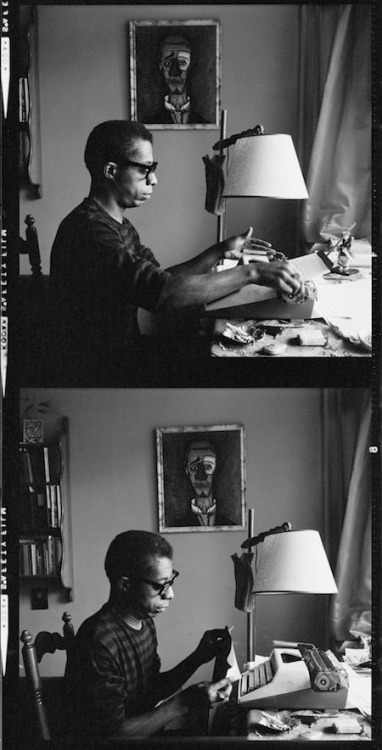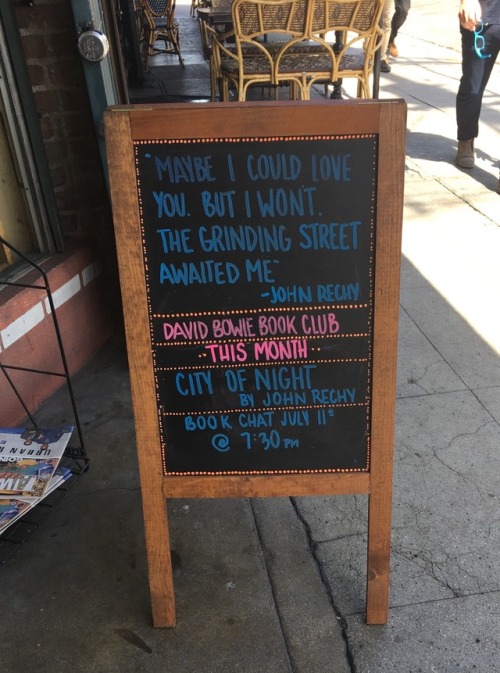#lgbtq authors


May is Asian Pacific American Heritage Month! Here are some recent titles by Asian American authors writing young adult speculative fiction and genre titles you can enjoy! Please let me know if you recommend any young adult genre titles by those from Pacific islands heritage in comments. Thank you!
A Line in the Dark by Malinda Lo
The Epic Crush of Genie Lo by F. C. Yee
The Speaker by Traci Chee
Rebel Seoul by Axie Oh
Not Your Villain by C. B. Lee
WARCROSS by Marie Lu
EXO by Fonda Lee
Chainbreaker by Tara Sim
The Ship Beyond Time by Heidi Heilig
Dove Alight by Karen Bao
A Crown of Wishes by Roshani Chokshi
WANT by Cindy Pon
A Thousand Beginnings and Endings edited by Elsie Chapman and Ellen Oh
Heart Forger by Rin Chupeco
Forest of a Thousand Lanterns by Julie Dao
By Sam J. Miller
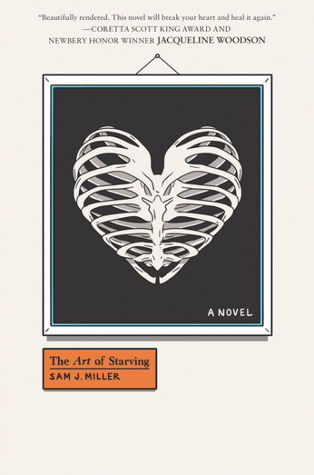
When Our Stories are Ugly
#ownvoices as a weapon against internalized oppression
When I started to tell my story, I knew that there would be trouble.
Months before my debut novel The Art of Starving came out, people were upset about it. They saw the synopsis and said it romanticized eating disorders. My protagonist, Matt, is a bullied small-town gay boy with an eating disorder (all of which I was) who believes that starving himself awakened latent supernatural abilities.
Eating disorder superpowers? Yeah, I get how that sounds problematic.
But the fact is, that was my experience. I didn’t get superpowers, but my eating disorder made me feel powerful. In control of something. I had absorbed so much hate and fear and toxic masculinity that they were the only weapons I had. And when the demons came - and they came every day - they were what I had to work with.
This is not an uncommon response. Many other survivors I’ve spoken with have shared a similar experience. I get emails all the time, from eating disorder survivors who have read the book and felt validated for the first time.
#ownvoices can get ugly, because our stories can be ugly. It isn’t all pride and power. And the pride and the power, if we’re fortunate enough to arrive at them, come from the ugliness. From what we’ve been through. From our ability to survive.
When we tell the truth about who we are and what we’ve been through, not everyone will like it. Adults may think that young people need to be shielded from these ugly truths, as if hiding from horror will make it disappear. Angie C. Thomas’s brilliant The Hate U Give was just banned in a Texas school district, allegedly for sexual content - when there is literally zero sex in the book - when obviously what they were really upset about was how brilliantly the book brought to life the pain and power of a young Black woman fighting back against police brutality. And young people, even ones from our own communities, might prefer not to explore these issues up close. Especially if they’ve been through something similar. They might find these discussions triggering. I have tons of love and support and respect for eating disorder survivors and others struggling with body image issues, who have to take a step back from this book. I have less respect for the grown-up gatekeepers who think that the way to help young people survive into adulthood is to pretend their pain does not exist.
My protagonist, Matt, is damaged. He’s been traumatized by constant physical and emotional abuse, and the crippling impact of patriarchy. He’s full of hate and anger and shame. He’s also smart and funny and full of love. We’re complicated people - all of us. Like Matt, I had internalized so much toxic masculinity - even as I rejected heteronormativity and embraced my queerness - that my rage took the form of violence. And when I couldn’t turn it on others, I turned it on myself.
Queer youth are especially susceptible to having complicated and painful body image issues, because we often grow up in a space where there is nobody to tell us we’re beautiful, nobody to fall in love with our minds. We’re having crushes on people that are not reciprocated. We’re being made to feel ugly and awkward and unwanted. That can be crippling. Some of these issues can last a long time. And then you grow up and enter a broader gay culture which is just as obsessed with a certain idea of masculinity and a certain type of body.
The power of #ownvoices stories to challenge is massive. With The Art of Starving, I wanted to confront the stigma and shame that so many young queer people are living with. I wanted to tell them how awesome they are. How I was there, once, sunk deep in misery and suicidal ideation and (sometimes) bloodthirsty rage, and eventually came out the other end of it being proud and happy and thanking the gods every day that they made me gay. But if someone had told me that then, I wouldn’t have believed them. I’d have assumed they were like every other adult, a complete idiot who didn’t understand me and therefore had nothing to teach me.
So when I started to tell this story, I knew that I had to honor the darkness that many young people experience. I get that some people won’t want to deal with it.. But it would have been dishonest of me to say “you’re awesome!” without acknowledging the pain folks feel.
If there’s a message to my book, it’s this: You are beautiful, you are magnificent, no matter what you look like. And if you are having complicated feelings about who you are and what you look like and what people think of you, that’s not weird or unheard of. Respect the darkness, but know that you are so much more.
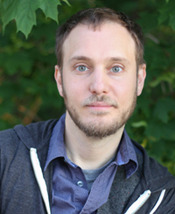
Sam J. Miller is a writer and a community organizer. His debut novel The Art of Starving (YA/SF) was published by HarperCollins in 2017, and will be followed by Blackfish City from Ecco Press in 2018. His stories have been nominated for the Nebula, World Fantasy, and Theodore Sturgeon Awards, and have appeared in over a dozen “year’s best” anthologies. He’s a graduate of the Clarion Science Fiction & Fantasy Writers Workshop, and a winner of the Shirley Jackson Award. He lives in New York City, and atwww.samjmiller.com
The Art of Starving is available for purchase.
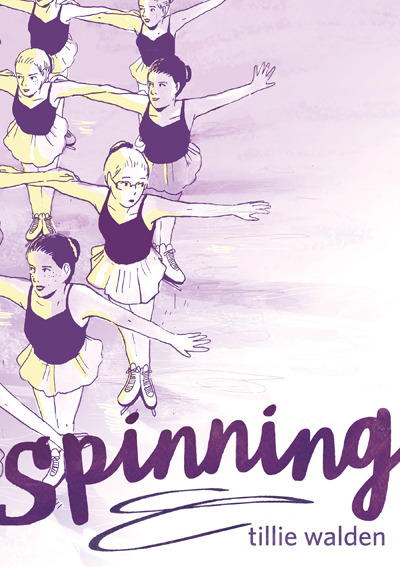
My graphic novel Spinning has been out now for over a month. I think. It’s actually a little hard to remember. Other authors may relate to this feeling - before your book is published, it feels like it’s never going to come out and the world is acting against you. And then when it finally comes out, it feels like its been there forever.
I’ve been traveling around with Spinning, talking to classes full of fidgeting kids, signing books with lines of people who are eager to discover what I actually look like, and getting late night dinners with bookstore owners after a whirlwind evening of talking about myself. Spinning is a graphic novel about growing up as a competitive figure skater. I talk about the expectations and challenges of being a young girl in that sport, while also dealing with coming out of the closet in Texas.
This is my first real book tour. I’m only 21, which tends to lead to agonizing expressions and eye rolls from a lot of older authors. And being a young, gay woman on a book tour for my graphic memoir has been exactly what you might expect: bizarre and wonderful.
It’s bizarre because so many people are surprised by what I have to say. They think that because I’m so young I don’t have enough real experiences to share. And that’s the moment where I launch myself into stories and use every tactic I’ve ever learned about public speaking to show them I do know what I’m doing. I tell them about moments in Spinning, about how I knew I was gay when I was 5, about the grueling practices and competitions, about how art gave me a connection to myself and a career at the same time. And I talk about how publishing a memoir is so healing because it let’s others hold your memories with you.
After I’m done baring my soul to audiences, people come up to me. They talk to me, they ask me questions, and they tell me about themselves. There was a father who thanked me for being a young successful lesbian that his daughter could look up to. There was the young woman who was having a hard day and simply cried with me. There was a young boy who aspired to one day draw Lumberjanes and wanted to know how he could make that happen. And then there were all the queer teens who simply wanted to share a piece of themselves with me after I had with them.
I think a lot about these moments. And I think about how what really matters about Spinning is not necessarily that it has queerness in it, but that it was made by me, a real queer person. That’s what I see people tapping into. And so much of the conversation about diversity seems to revolve around the content of our books, when really in my mind the focus should be entirely on the creators. True diversity comes from diverse voices.
I think about the queer kids along the way who have shown me their own comics, or who have shared their aspirations to create one day. And they often ask me if they should do a memoir, of if they should try and write a hard, honest story about themselves. I can see that they want to be a part of something, that they want to have an impact. But I always tell them the same thing. If you’re queer and you’re making things, your only job is to make what you want. We benefit from it all. The happy fantasies and the crime novels and the memoirs and the fan fiction. Diversity doesn’t require some hardened, tragic, real life perspective. It only requires that diverse people have a platform to share stories in any form that they want. In Spinning, I wanted to talk about the world of competitive figure skating from my own perspective. I wanted to talk about bullies, my first love, the dangers and beauty of childhood, and finding your identity in a sport where individuality loses you medals. Spinning is a piece of me. I drew every page with care and honesty. At times it was scary to share such a personal story, but I’m so glad I did.

Tillie Walden is a two-time Ignatz Award–winning cartoonist from Austin, Texas. Born in 1996, she is a recent graduate from the Center for Cartoon Studies, a comics school in Vermont. Her comics include The End of Summerand I Love This Part, an Eisner Award nominee. tilliewalden.com
Spinningis available for purchase.
TODAY IS THE DAY! The YA world finally gets to have more Malinda Lo to read! I had the pleasure of beta reading this book, and this deliciously dark thriller is one of my favorites by Malinda. Just look at this stunning cover!

Jess Wong is Angie Redmond’s best friend. And that’s the most important thing, even if Angie can’t see how Jess truly feels. Being the girl no one quite notices is OK with Jess anyway. While nobody notices her, she’s free to watch everyone else. But when Angie begins to fall for Margot Adams, a girl from the nearby boarding school, Jess can see it coming a mile away. Suddenly her powers of observation are more curse than gift.
As Angie drags Jess further into Margot’s circle, Jess discovers more than her friend’s growing crush. Secrets and cruelty lie just beneath the carefree surface of this world of wealth and privilege, and when they come out, Jess knows Angie won’t be able to handle the consequences.
When the inevitable darkness finally descends, Angie will need her best friend.
“Lo has delivered an intricate tapestry of narrative, woven in a labyrinthine pattern of secrets and colored with intersecting hues of Chinese-American identity, the dark intensity of relationships, and telltale stains of blood.”—Kirkus Reviews (starred review)
“With an active focus on female friendships and relationships, A Line in the Dark is a twisty, dark psychological thriller that will leave you guessing til the very end. The story follows two friends down a path of dysfunction and murder as one of them, Chinese-American Jess tries to balance the expectations of her family, her fraught relationship with Angie, and her mounting sexual attraction for her. Lo offers some impressive storytelling, a chilling plot, and mean girls aplenty.”—Teen Vogue
A Line in the Dark is available for purchase now.
“You write in order to change the world … if you alter, even by a millimeter, the way people look at reality, then you can change it.”
―James Baldwin
Photo of James BaldwinbySedat Pakay. More Baldwin posts here&here&here.
Post link
LEATHER AND LACE GOODREADS GIVEAWAY

An unlucky vampire from the wrong side of town. A monster hunter with a golden voice. A man-eater on the loose. A unique, refreshing, and unconventional urban fantasy and paranormal romance about what happens when supernatural opposites attract.
Enter now for a chance to win 1 of 100 Kindle copies!
I received an eARC from Netgalley in exchange for a honest review
Dorian and Cash are best friends, roommates, and coworkers. Despite their significant differences - Dorian is a vampire and Cash is a human who hunts monsters - they’ve grown to care about each and they make a good team, hunting down killer monsters at the behest of the Devereux Police Department. However, their easy camaraderie is upset when their friendship veers from platonic to romantic. Add to the mix a serial killer with a taste for human flesh, and Dorian and Cash’s careful balancing act is thrown for a loop as both men struggle to decide if they should make a move and risk their current status quo or remain in the friend zone.
Leather and Lace presents two compelling main characters and fleshes out their relationship through well timed narrative flashbacks. Dorian and Cash are polar opposites, with Dorian coming from a past filled with betrayal and upheaval, and Cash from a nurturing family of female hunters. Dorian has flair and loves to wear makeup and crop tops, masking his deeper issues and severe anxiety. Cash maintains an easy going demeanor but is searching for someone who appreciates all of him, including his deep love of Stevie Nicks and karaoke.
At its heart, Leather and Lace is about the relationship between Cash and Dorian but it also has a gruesome serial killer plot and an intriguing urban fantasy world populated by humans and supernatural creatures like vampires, werewolves, and shifters of all types. This book will definitely appeal to fans of shows like Supernatural and urban fantasy book series like White Trash Warlock and the Mercy Thompson series.
Random things I loved in the series: Dorian’s emotional support Chihuahua (her name is Dominique and Dorian dresses her in very cute sweaters and sparkly collars), the way supernatural creatures have evolved (vampires eat food and go out in the sun), Cash is Mexican-American, southern setting, werebadgers, all the soft karaoke moments, Dorian looks like a waif but is fulling capable of holding his man down!, the slow dance, the fact that the author openly acknowledges that Dorian and Cash are inspired by Cas and Dean. I’m really looking forward to the next book!
(Image from Goodreads)
Post link

